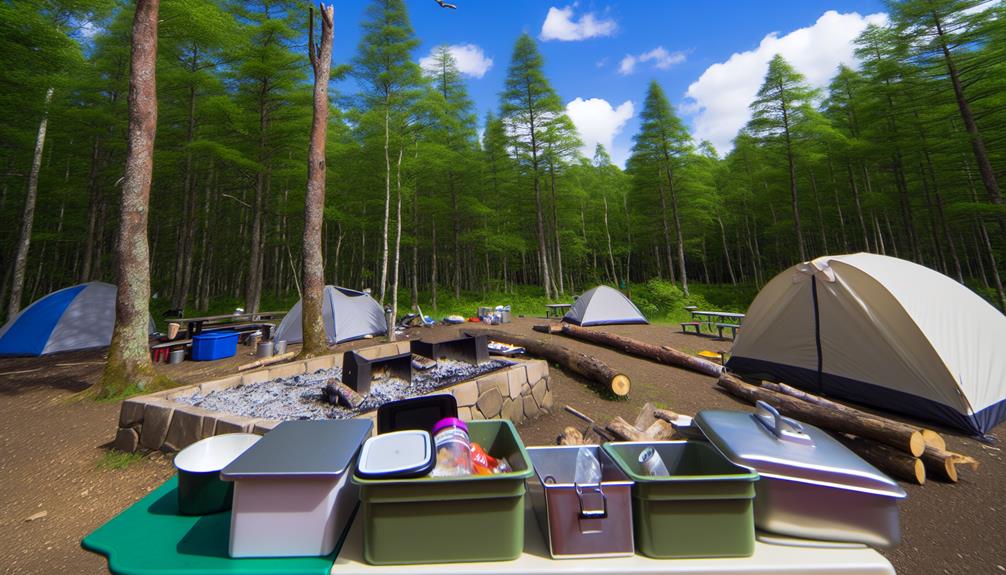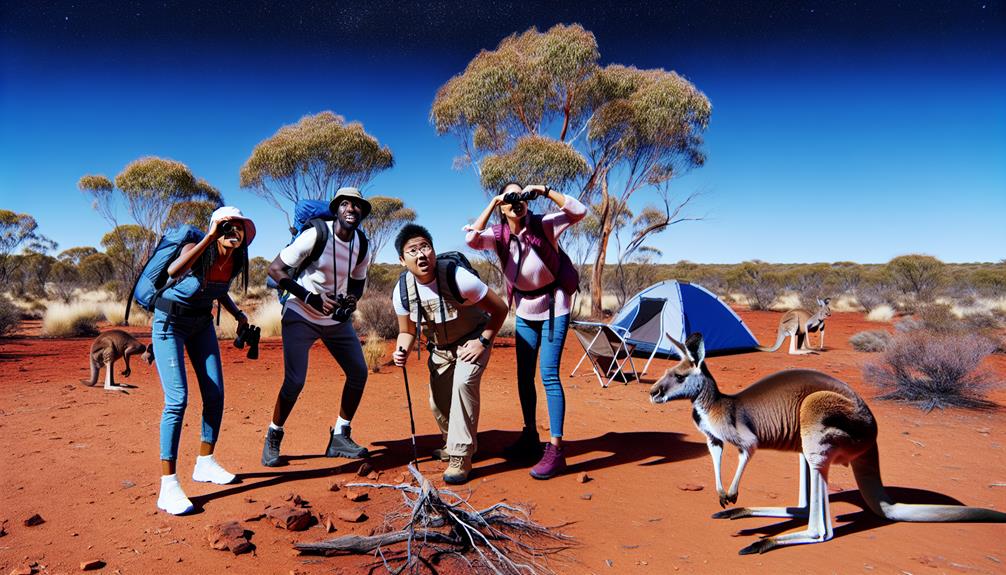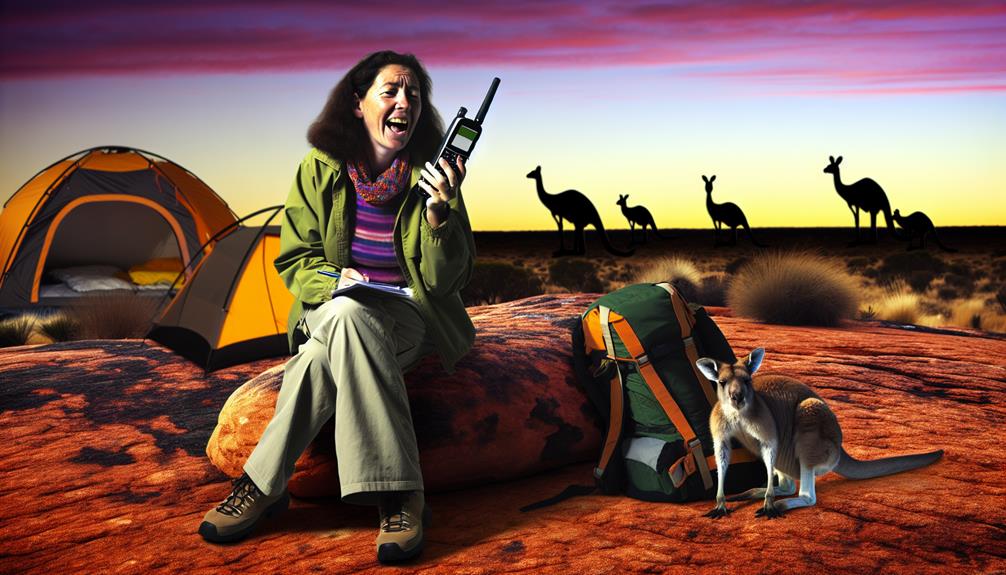When setting up camp in the Australian outback, picture this: you've just finished cooking dinner over the campfire, and as the sun sets, you catch a glimpse of a kangaroo hopping nearby. While this may seem like the perfect camping scenario, it's important to remember that wildlife encounters can be unpredictable. Knowing how to navigate these situations is crucial for a safe and enjoyable camping trip in Australia. So, what steps can you take to ensure your camping experience is free from unwanted wildlife encounters?
Identifying Potential Wildlife Hazards
When camping in Australia, it's important to be aware of potential wildlife hazards and take proactive measures to ensure your safety. Recognizing animal tracks and understanding animal behavior are crucial for avoiding unwanted wildlife encounters. Kangaroos, wallaroos, and wallabies are native to Australia and can be encountered almost anywhere. It's important to give them their space and avoid provoking them, especially male kangaroos, which can become aggressive when threatened. Additionally, staying at least 50 meters away from bodies of water that connect to the sea is recommended to avoid encounters with dangerous crocodiles. Snakes and poisonous spiders are also potential hazards, so wearing protective clothing and seeking immediate medical treatment if bitten are essential precautions. Understanding the behavior of these animals and being mindful of their presence can significantly contribute to a safe and enjoyable camping experience in Australia.
Minimizing Attraction to Campsite

To ensure a safe and enjoyable camping experience, it's essential to minimize the attraction of wildlife to your campsite by taking proactive measures. Here are some tips to help you achieve this:
- Close caravans or tents to protect food supplies from possums, bandicoots, and wombats.
- Dispose of trash away from the campsite to avoid attracting small marsupials.
- Store food and trash properly to avoid attracting snakes.
- Use chemical snake repellents around the campsite perimeter as a deterrent for snakes.
Proper Food Storage and Disposal
Properly storing and disposing of food is crucial for maintaining a safe and wildlife-friendly campsite experience. Avoiding food contamination and preventing wildlife scavenging are essential for a successful camping trip. Here are some tips to ensure proper food storage and disposal:
| Tips for Proper Food Storage and Disposal |
|---|
| Dispose of trash away from the campsite to avoid attracting small marsupials. |
| Keep a distance from animals like possums, bandicoots, and wombats, which may try to steal food, as they may carry diseases or bacteria. |
| Close caravans or tents to protect food supplies from wildlife. |
Safe Wildlife Observation Practices

Maintain a respectful distance from wildlife to prevent food theft and minimize encounters with potentially dangerous animals while camping. When observing wildlife, remember to practice ethical wildlife photography and ensure responsible interaction with wildlife. Here are some essential safe wildlife observation practices to follow:
- Use caution and avoid provoking kangaroos to prevent aggressive behavior.
- Stay at a safe distance from crocodile habitats and avoid provoking them while camping.
- Wear protective clothing such as high boots and loose pants to reduce the risk of snake encounters.
- Seek immediate medical treatment if bitten by any spider and take preventive measures to avoid attracting dingoes and other wildlife to your campsite.
Respecting wildlife and their habitats is crucial, so dispose of trash away from the campsite to prevent attracting small marsupials.
Emergency Response and Reporting

In the event of an emergency while camping, understanding the DRS ABCD mnemonic can greatly improve your ability to respond effectively and seek help. It's crucial to undergo emergency response training to familiarize yourself with the DRS ABCD steps, including assessing the Danger, checking for Response, Sending for help, ensuring Airway, monitoring Breathing, performing CPR, and utilizing Defibrillation if necessary. If an emergency incident occurs, reporting it promptly is essential for swift assistance. Keep in mind that seeking immediate medical treatment is crucial if bitten by any spider or snake, and staying calm while waiting for help can make a significant difference. Additionally, having a form of communication, such as a PLB, is vital for emergencies, and calling for further assistance when needed can be a lifesaving measure. Remember, being prepared and knowledgeable about emergency response and reporting can greatly enhance your camping experience.

